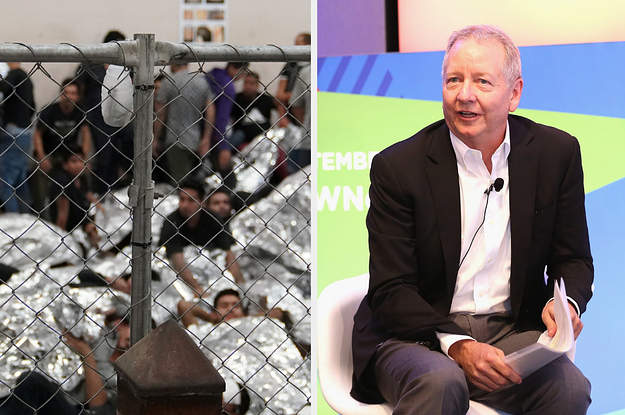Trusted media brands are cashing in on search engine affiliate marketing with thin gruel content.
advertising
The deck does not say where CMG allegedly sources this voice data, be that a particular brand of smart TV, a smart speaker, or smartphone loaded with a particular app. It says that once it has used the voice data to identify an audience that is “ready-to-buy,” CMG builds a list of those audience members and uploads it to ad platforms to then target advertisements.It sure sounds like CMG is selling advertising based on the idea that our smart devices are picking up our conversations and reporting them back to their company.
"We tried peace for 2 years, now it is war," Musk wrote today, a little over eight months after telling boycotting advertisers to "go fuck yourself."You see, the web is a customer service medium.
These strategies move publishers further away from seeing social media as a source of clicks. This could be a risky pivot away from traffic sources, given that NPR and many member stations have laid off staff or made other cuts due to declining revenues. But the social media clickthrough audience has never been guaranteed; a Facebook algorithm change this year also tanked traffic to news sites. Instead, recognizing that social media is not a key to clicks seems like a correction to years of chasing traffic through outside platforms.Nice confirmation that the social media effort wasn't and isn't worth the return for news orgs. You're building someone else's platform—and they're platforms that can rug-pull at any moment because their profits aren't directly tied to that organization-generated content.
The disintegration of the Pac-12 has been an entirely avoidable tragedy brought on by the craven machinations of people who, it can only be assumed, do not love college sports very much at all.This. A few TV execs maximizing ad revenue and a handful of administrators who must be under pressure to maximize football profits are making terrible decisions.
Update (9/8): OSU and WSU sue to stop schools who chose to leave from voting on the future of the conference.
"In another example, an ad for the streaming service Peacock appeared next to a tweet from Anthime Gionet, an influencer known as Baked Alaska, who was recently sentenced for his role in the Jan. 6, 2021, riot at the U.S. Capitol. The ad appeared next to a tweet where Gionet asked his followers whether he should “say the n-word.”"Twitter is toxic for people so it's a toxic place to build brands.
"Mastodon, a decentralized social media platform that many are turning to as a Twitter alternative, saw its userbase skyrocket from about 300,000 monthly active users to 2.5 million between October and November, Mastodon’s CEO, founder, and lead developer Eugen Rochko said in a new blog post."Heh, flocked. That's a lot of people who are suddenly active on an ad-free network. They might get used to that! I'm volunteering a monthly amount to my Mastodon instance admins and I hope enough of that kind of direct support can keep the alternative social media lights on.
"The law allows financial penalties of $10,000 per violation, which can be tripled when violations are deemed intentional. The Attorney General’s Office asserted Facebook has committed several hundred violations since 2018."This is a new one: a corporation intentionally breaking the law over and over again might have consequences?
"'For most advertisers, having an ad placed on a Steve Bannon-affiliated outlet is the stuff of nightmares,' said Nandini Jammi, the co-founder of Check My Ads, an ad industry watchdog. 'The fact that ad exchanges are still serving ads should tell brands that their vendors are not vetting their inventory, and I wouldn’t be surprised if advertisers who have found themselves on War Room request refunds.'"Alternate title: how Google profits from online hate.
"So today I set out to actually see what it is one agrees to when they accept all."Peeling back the layers on those cookie agreement dialogs helps us learn about how web advertising works (and how massive the industry is).
"Apple’s tracking permission dialog is something no sane person would agree to because this sort of tracking is something no sane person would agree to."We agree to it every time we use the Internet with default settings. Changing defaults will cause some pain but it’s necessary.

It’s heartening to hear these Ogilvy employees push back against their company’s work for CBP. Wayfair employees walked out last month to protest border contracts. And today Microsoft announced it would temporarily suspend its PAC giving because of internal pressure. I’m not sure if these are anomalies that businesses will adapt to or a more lasting movement that will get companies to act on their stated values.